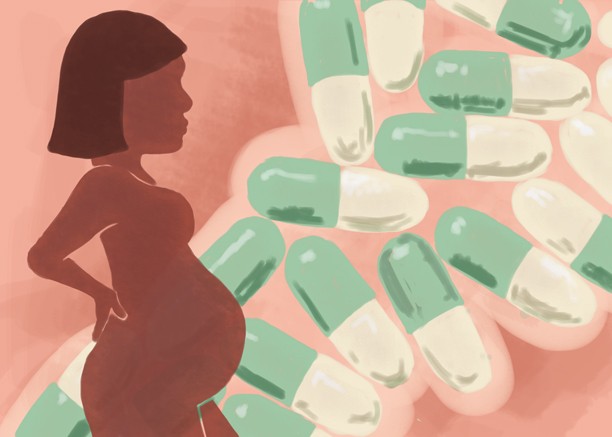A recent study suggests there is no evident link between pregnant women taking antidepressants and the risk of their child subsequently developing autism spectrum disorder or attention deficit hyperactivity disorder (ADHD), contrary to previous concerns.
The study, performed by a research team in the Massachusetts General Hospital, also found that the appearance of an increased risk is most likely indicative of the severity of the woman’s depression, which is already considered a risk factor for many neurological conditions, rather than a side effect of antidepressants.
This research, published in the Jan. 5 issue of Translational Psychiatry, is connected to a study published in Molecular Psychiatry in 2014 that analyzed the electronic health records of thousands of children. Researchers found a connection between prenatal exposure to antidepressants and children developing ADHD, although the study did not find a link to autism.
Now, however, the link seems less consistent. The 2016 study, which refers to the 2014 results as being “without clear mechanistic explanation,” also reviewed electronic health records. The study used a 1:3 ratio of children with autism or ADHD to children without any neurological disorder to compare data.
The study also took socio-demographic factors into account, noting factors such as the age of the parents and children, ethnicities, and socioeconomic status.
While there seemed to be an increase of children with autism or ADHD born of women who took antidepressants prior to pregnancy, there was no increase in either condition where women took antidepressants while pregnant.
Maternal psychotherapy, therapy that is considered a treatment often used by people who have severe depression, was associated with a heightened risk of the child developing either disorder. While antidepressants themselves revealed inconsistent results, the chance of a mother receiving therapy and their child having autism or ADHD coincided.
This led the research team to believe that the link’s inconsistencies stemmed from the fact that the connecting factor was not antidepressants, but depression itself. Pregnant women who may need psychotherapy while pregnant are more likely to have children with either disorder.
Both studies were authored by Roy Perlis, the medical director of the Bipolar Clinic and Research Program in the department of psychiatry at the Massachusetts General Hospital. Perlis says that both studies lend to the possibility that the severity of the parent’s depression is a risk factor.
“The fact that we now have found, in two large case-control studies, no increase in the risk for autism with antidepressant use itself should be very reassuring,” Perlis said in an interview with MD Magazine.
“Some of the studies that have suggested an association did not account for key differences between mothers who take antidepressants and those who don’t, in particular that those taking antidepressants are more likely to have more severe illness.”
Perlis hopes the results of this study will reassure women about seeking treatment for anxiety or depression during their pregnancies.



